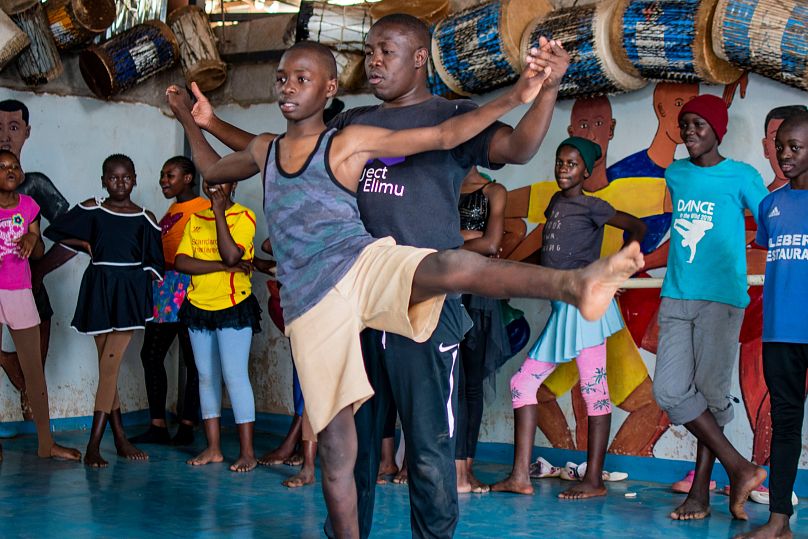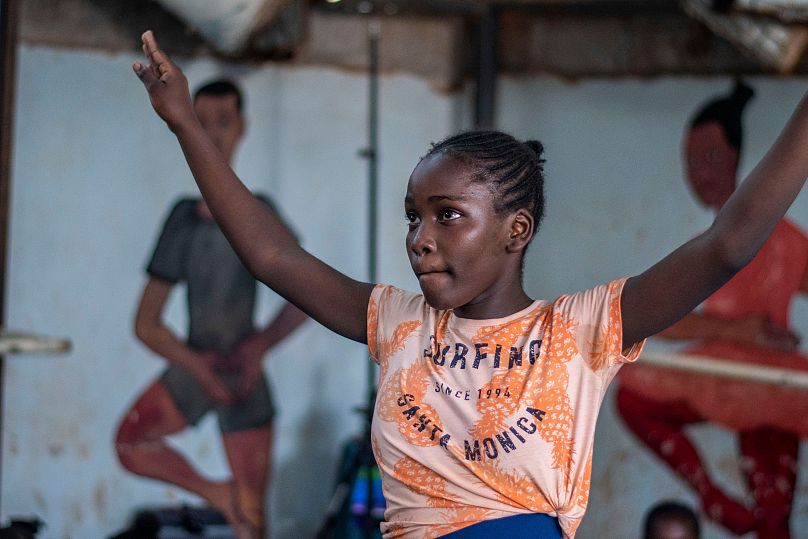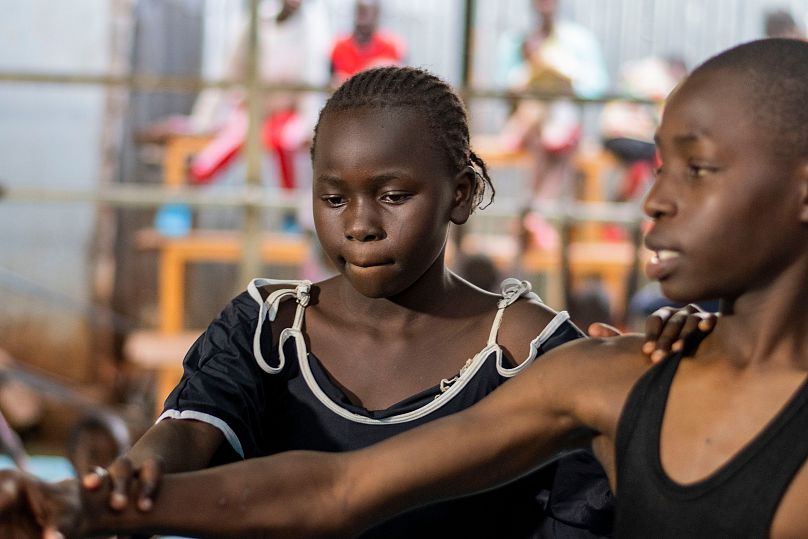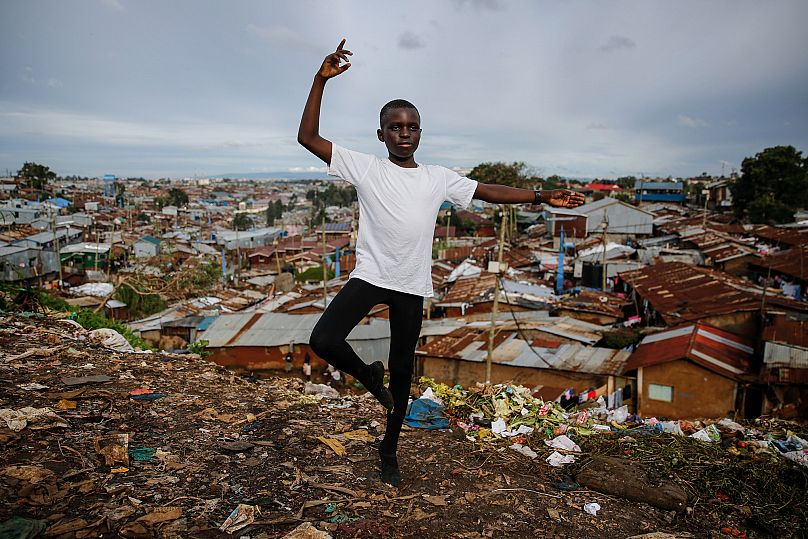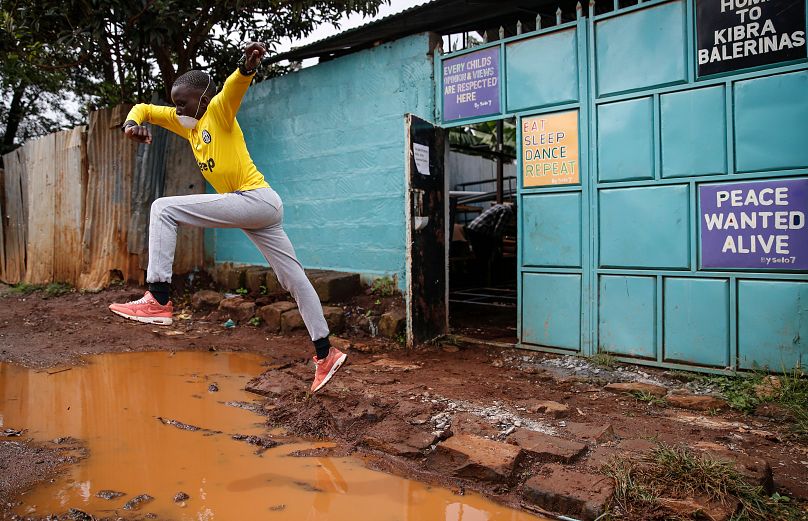"Everybody deserves the right to dance. Everybody deserves the right to be who they are. Ballet was made for the elite because it needed to divide people, but dance is something that is meant to unite."
SCENES shines a spotlight on youth around the world who are breaking down barriers and creating change. The character-driven short films will inspire and amaze, as these young change-makers tell their remarkable stories.
 ADVERTISEMENT
ADVERTISEMENT
 ADVERTISEMENT
ADVERTISEMENT
Michael Wamaya was 13 years old when his life was turned upside down. His father's death forced him to drop out of school to support his family. While selling car parts, he saw a poster announcing auditions for the Kenya Performing Arts Group. Without any previous experience, Michael's determination shone through and he was offered a place at the Nairobi based school. A few years later, he performed across the world with the dance company.
At the start of 2008, Michael received an offer to join a European performing arts group. At the time, Kenya was in crisis. A controversial presidential election in December 2007 led to violence sweeping the nation and ethnic divisions being exposed. Two months of fierce fighting left 1,000 dead and more than 500,000 people internally displaced. Michael was shocked by the bloodshed and was determined to give back to his homeland. He turned down the offer and returned to his country in the hopes of using dance to unite his people.
"Everybody deserves the right to dance. Everybody deserves the right to be who they are. Ballet was made for the elite because it needed to divide people, but dance is something that is meant to unite," Michael told Scenes.
Michael began teaching ballet as an after school activity to orphaned and vulnerable children living in Kibera, Kenya's largest slum. With no facilities, classrooms were transformed into makeshift studios. In June 2017, through fundraising and donations, Michael was able to open his dance centre, Project Emilu.
Situated in the heart of Kibera, the school offers a wide range of lessons, from classical ballet to African dance, to jazz. Michael's aim is not to make children professional ballerinas but give them the courage to build a better future for themselves. "We use dance more as a therapeutic tool. To give them confidence, to make them believe in themselves, to make them understand what they want," he explains.
A safe haven
Through Michael's hard work and dedication, Project Emilu has positively impacted the community. It also acts as a shelter for children to play, learn and grow.
"Kibera is quite rough and tough for young people living here. So they come here just to feel safe, to hang around each other and to talk and also to discuss issues that are affecting them within their community," he says.
Home to 250,000 people, Kibera is Africa's largest urban slum. Most residents live in extreme poverty, with no electricity or running water and earn less than €1 a day. Slums have become notorious for violence, crime, criminalisation of youth and illicit activities. Healthcare is limited and gender-based violence is commonplace. Slum-dwellers are often marginalised from the rest of Kenyan society.
"When you come out as a child saying, 'I'm from Kibera', you are always looked down upon. So the children have to do a lot. If you are studying, you have to study hard. If you're dancing, you have to dance hard. You have to do things three or four times harder to convince the outside world that you are actually better," Michael explains. "That, to me, I think, is also an advantage, because it makes us stronger and better every day," he adds.
Open for all
Project Elimu is free of charge to children of all ages and backgrounds. Michael has worked hard to encourage boys to join the dance programme. "My work is always to try and find ways how I can make the boys feel much more engaged. I always say boys are ballet because boys lift the girls. It's boys who make the women shine. They are the muscles that are needed in classical ballet," he explains.
Michael has also seen an increase in children with disabilities participating in the dance classes. "Initially, disabled children were locked in houses in Kibera because of shame from their families or because no one takes care of them but they're now being let out to come into a space to dance," he says.
A gateway for opportunities
The dance school allowed children to obtain grants and opportunities abroad. In 2016, the students took part in the production of The Nutcracker at the National Theatre in Nairobi. Michael has helped change perceptions and shed light on the talent within the informal settlement. “When we do our dance performances, we don't go to the big theatres and we do them here. We've changed the notion of it being a violent place to a place where people come in and see children who are optimistic of their future," he explains.












